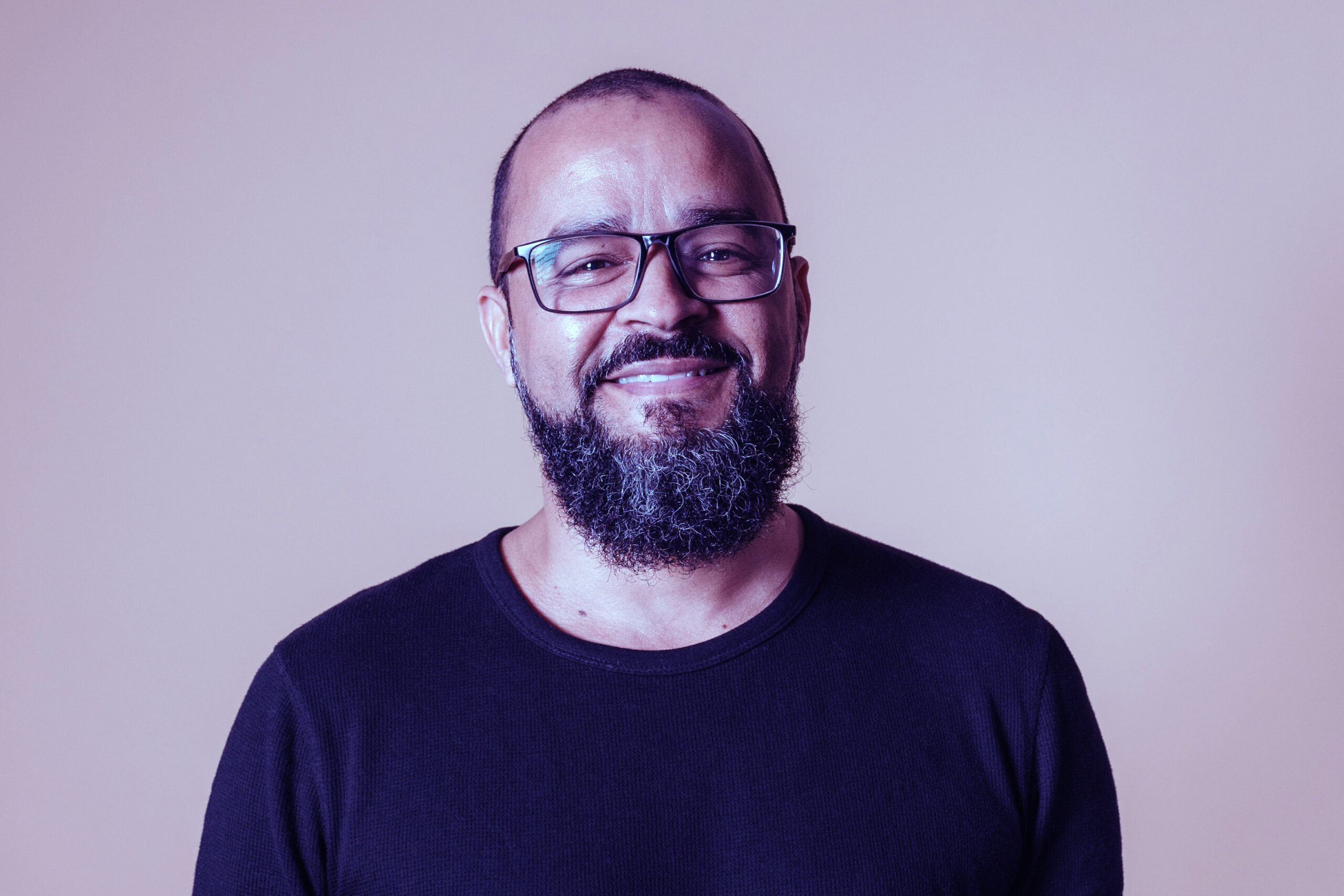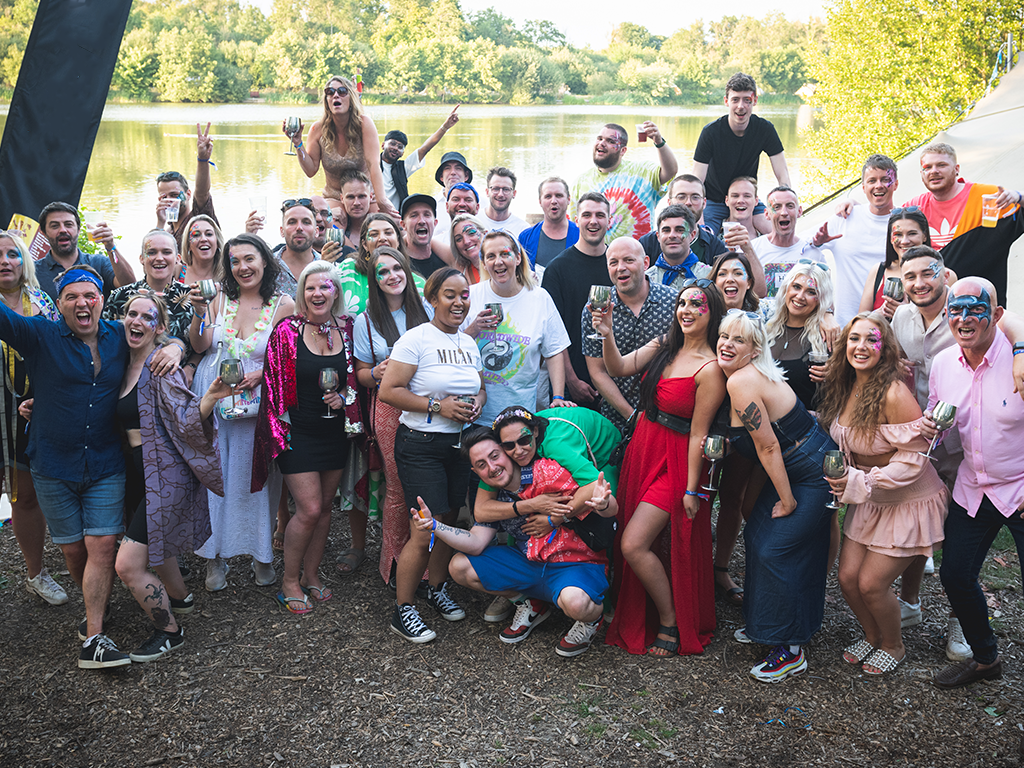As part of our Neurodiversity at Work: Thinking Differently series, we spoke to Darren Clark, CEO of Succeed with Dyslexia – a global movement focused on promoting positivity around learning and literary differences. As a globally-recognised advocate for dyslexia and neurodiversity champion, Darren shares his insights on why company-wide awareness is crucial to achieving true inclusivity for neurodiverse individuals.
How does Succeed with Dyslexia support neurodiverse individuals?
Succeed with Dyslexia (SWD) is a global movement that encourages positivity around dyslexia and other neurodiverse differences. We believe that everything starts with having a conversation, so we do a lot of work around building awareness via social media and other campaigns.
You can have all the technology and structure in place but, if you’re not willing to adapt and have forward-thinking conversations around how to better your approach, success will be limited. SWD helps organisations bring this ability to the table so these all-important conversations toward action can happen.
This allows us to be a real voice within the community, spreading awareness on a global scale. We know we won’t capture the attention of everyone each time we support a campaign but, when people start resonating and changing their mindset around neurodiversity, that’s when you’ve taken the first crucial step toward inclusion. People just want to be heard.
Over the past 7-8 years I’ve seen a dramatic change in how neurodiversity is approached, but more work definitely needs to be done.
What improvements do you think workplaces still need to make in supporting their neurodiverse employees?
I’ve personally worked with giant organisations that are doing amazing work, as well as smaller organisations who are equally as passionate. However, regardless of organisation size, I believe one vital aspect needs to be consistent. When looking to better support someone (or a group of individuals) at work, it has to start from the top down.
It’s crucial for the entire company to have awareness of neurodiverse differences. How can we support our neurodiverse colleagues if we don’t really know what the term even means?
Tailoring your approach
I often find when looking on platforms like LinkedIn, I’ll see companies posting photos of new starters with their new laptop, pen, notepad etc. While this is great and shows that they’re being given resources from the get-go, it would be amazing to see evidence of this type of support being expanded. Where does it go from here?
Give someone with dyslexia a shiny new laptop and a pen; this won’t necessarily help them do their job to the best of their ability. Adapting the resources and tools you give your employees will go a long way in not just delivering support – but demonstrating you are an inclusive workplace who cares about the individual needs of your staff.
Where does it begin?
Education from the top down is key, as well as showcasing inclusivity and care at the beginning of the application process. You need to showcase that your organisation is a safe and inclusive environment from the outset, whether that be via inclusive language, altering your font to make the text more readable, etc. People need to know this is a workplace in which they can safely declare their dyslexia or other neurodiverse traits (and receive the support they need) – otherwise, they may not even want to apply to any open roles you have.
But it certainly doesn’t stop at the application process; this awareness must be embedded within an entire organisation. A workplace must be equipped to answer questions a neurodiverse person may have. It’s all well and good to create a safe environment in which someone feels comfortable coming forward – but true support and change won’t happen if the structure isn’t in place to actually follow through.
Many people wrongly assume that awareness around neurodiversity is “a HR thing”, but it’s not. It’s a company-wide thing that requires education and out-of-the-box thinking.
What advice would you give to someone with dyslexia (or other neurodiverse differences) who is worried about succeeding in today’s world of work?
Surrounding yourself with likeminded people is a real recipe for success, but it can feel very daunting. Simply having someone to speak to about neurodiversity-related topics and feelings, whether that be friends, family or colleagues, often goes a very long way in feeling more comfortable. But finding people you feel able to open up to isn’t a walk in the park – and having workplace support can be hugely beneficial in achieving this.
From my perspective, I wasn’t diagnosed with dyslexia until I was 36. And I’d never even heard the word ‘dyslexia’ until then! No one had ever mentioned it. The first time I heard it was through watching an interview on TV. I googled it, did an online test, and my results came back as severely dyslexic. I sat on it for about 6 months and eventually went through the process of being diagnosed professionally, and that’s how my journey started.
I’m very open about my dyslexia and talk about it a lot. But there’s still a tiny feeling in the back of my head that if I was looking for another job, would I have doubts about declaring my dyslexia on an application form? It’s a very common concern amongst neurodiverse individuals and I completely understand the reservations that arise from it.
It has to be a two-way street
At the end of the day, people simply need to know if a working environment will suit them. When it comes to neurodiversity, this often comes in the form of being a safe space in which people can declare and open up – and the support they receive as a result. But this has to be a two-way thing; it has to work for both the individual and the organisation.
One of my biggest pieces of advice for organisations is to outsource people to come in and educate, starting these conversations. Having a third party perspective can be hugely beneficial in helping people feel comfortable to talk, as well as helping employers think ‘outside the box’.
It’s also important to remember that these conversations need to be ongoing. Typically, we get an influx of employers coming to SWD asking for advice in October which is Dyslexia Awareness Month. While it’s great to see organisations taking action around this time, this work and awareness needs to be continued and followed all year round.
For example, if a member of staff listens to a neurodiversity talk by an outsourced professional, they may have questions to ask at a later date. It’s crucial you have a process in place to answer these questions and provide further support. How will HR approach these questions, unless the support is in place to actually follow through on having these conversations?
Key takeaways
No one is expecting employers to become professionals in neurodiversity. Simply having more awareness can have a real snowball effect in achieving true impact for a workplace.
Reach out to organisations like SWD to get the ball rolling on how to put measures in place to support your staff, and just ask the question! Reaching out to people who can help is the first step in boosting awareness and better supporting your people.
And finally, listen to your staff and don’t single people out. Awareness is crucial, but it must be company-wide to have real impact – and have you communicate this is key. Instead of saying “we’re having neurodiversity-focused training because some of our employees have dyslexia”, say “we’re having this training because we want to be a more inclusive workplace”.









